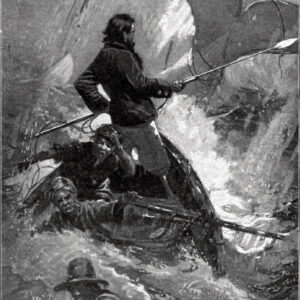
Sebastian Castillo on the Pleasures of Reading Fiction in Translation
In Conversation with Brad Listi on Otherppl
Sebastian Castillo is the guest. His new book, Not I, is available from Word West.
From the episode:
Brad Listi: It’s one of the things I scold myself for, and I always enjoy it whenever I do it, is reading outside of my country. It sounds like you do a pretty good job of this. You read a lot of books in translation, or a lot of books from foreign writers?
Sebastian Castillo: Yeah, yeah, definitely.
Brad Listi: Is that the majority of what you read?
Sebastian Castillo: I would say yeah. In terms of fiction, at least 50 percent of it. My favorite presses are places like New Directions, Dalkey Archive, places that put out a lot of translation. I mean, there’s just so much amazing work. I remember when I was in an MFA program, I had a meeting with one of the teachers who said I should push myself to read more work that is written in English in order to have a sense for the sentence. It just struck me as kind of strange to assume that all the best literature is the one that happened to be written in your native language.
Brad Listi: Yeah. I kind of feel like—I mean, you tell me. You’ve read more international literature than I probably have over the past several years. What does it teach you, or what have you learned about American literature, or how you want to approach literature from reading other cultures? What are they doing? Can you point to things that are happening and say, you know, Argentinian or South American literature or European literature or Spanish literature or whatever it is, can you locate artistic movements or tendencies that you see in these books that you find lacking in American literature or would like to incorporate into your own literary project?
Sebastian Castillo: I think the biggest thing for me is that it shows you that the—and here I’m talking about the kind of generic American literary fiction, right? Like New Yorker style, Iowa fiction MFA, which I know is an unfair characterization. But the concerns of that style of writing, it’s like this obsession with craft. It’s like this beautifully written story about a guy who’s divorced who goes on a cruise for a weekend. And there’s this kind of unquestioned middle-class lyricism to it. Maybe it’s not so much the case anymore but for at least, I feel, a long time, it was sort of exalted as a platonic ideal of literary fiction.
When you read stuff outside of the US, you see that those concerns just don’t exist. There’s a lot more playfulness. I mean, you can’t generalize, but you read sentences that you think you wouldn’t read from a traditional American literary fiction writer. There’s just a playfulness and an openness to what literature can do that I personally really appreciate. It feels so much more freeing.
*
To listen to the rest of the episode, as well as the whole archive of Otherppl with Brad Listi, subscribe and listen on iTunes or wherever else you find your favorite podcasts.
Sebastian Castillo was born in Caracas, Venezuela, grew up in New York, and lives in Philadelphia, where he teaches writing.
Otherppl with Brad Listi
Otherppl with Brad Listi is a weekly podcast featuring in-depth interviews with today’s leading writers. All episodes—hundreds of them—are available for free. Listen via iTunes, Stitcher, iHeart Radio, or right here on Lit Hub. You can also download the Otherppl with Brad Listi app, available for iPhone and Android.



















